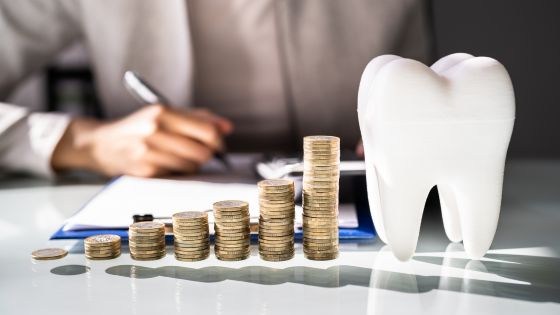Dental costs can be expensive, but you don’t have to drain your savings or disrupt your monthly budget. Several financing options can help you get the care you need without straining your finances.
Personal loans provide flexible repayment terms tailored to your specific financial situation. Successfully managing your loan payments can also help improve your credit score.

You don’t want to settle for less than the best regarding your oral health. If the cost of a dental procedure keeps you from getting care, many financing options can help. Understanding the dental financing plans for your budget is a vital first step in making your dental dreams a reality.
Cash or credit cards are the most common ways to pay dental expenses, but there are a variety of other financing solutions as well. For example, some dentists offer in-house payment plans that allow borrowers to spread out the costs of procedures over several months with low-interest rates.
A personal loan can be another option, with borrowers typically getting funds from a lump sum deposited into their bank account within a few days. Depending on the lender, this process may involve a credit check, and it’s usually a good idea to prequalify with multiple lenders to get an estimate of the annual percentage rate (APR).
Medical savings accounts are a great option for individuals with high-deductible health insurance plans because they can cover out-of-pocket medical costs not covered by their plan. Individuals can set aside $2,750 annually in these accounts and withdraw the money as needed. If you don’t have a high-deductible health plan, you may be unable to use this option to pay for your dental work.
Prioritizing dental health often involves considering various factors; financing for dental work, for instance, emerges as a valuable solution for individuals seeking flexible options to manage the costs of necessary treatments and procedures.
Other dental financing options include in-house payment plans at the dentist, 0% credit card options, and dental savings plans that charge an annual fee for members to receive discounts on procedures from providers in the network. However, it’s important to remember that using these financing options can add up and cost you more in the long run than paying for the work upfront with a loan or credit card.
In addition to these financing options, personal loans are available from banks and credit unions. It’s recommended that borrowers research all of their options and consider the pros and cons of each one before applying for a personal loan to cover dental expenses.
With the right planning, it’s possible to prioritize your dental health without worrying about how you’ll afford your treatment. If you are unsure which financing is right for you, contact a trusted healthcare lending provider and request prequalified offers in minutes without impacting your credit score. You can also visit your local dental school to see if they offer discounted services. Lastly, it’s always worth exploring other ways to save for and pay for dental work, including holding a garage sale or finding a reputable dentist to give you a discount if you don’t have insurance. If you do have insurance, be sure to take advantage of it!
In-House Financing
Many patients avoid or delay dental treatment due to budget concerns. Financing payment options like those listed below can help ensure they receive the care they need to maintain a healthy smile.
Many medical and dental offices use in-house consumer financing programs for their clients. This type of financing allows the business to set its borrowing requirements, which is beneficial for customers who may need to meet the stringent credit standards of traditional lenders. In-house financing is common in various industries, including electronics, home goods, and vehicle dealerships.
Another type of consumer financing is a personal loan. This type of loan typically requires a higher credit score to qualify. However, some companies specialize in loans for medical and dental expenses and provide financing to consumers who don’t have the best credit scores.
Charities, grants, and dental schools may also offer financial assistance for various procedures, but these options are usually only available to low-income patients. In-house financing programs can be a great option for patients who don’t want to run up the balance of their credit cards or take out a personal loan with interest rates that can add up over time. This method also helps patients build up their credit scores and provides a more predictable monthly repayment schedule than other methods.
Dental Savings Plans
A dental savings plan works like a membership program where patients pay an annual fee and are given discounted rates on various treatments. These plans can be a great option for patients who want to avoid the hassle of insurance or are struggling to afford it.
This is a growing trend since COVID-19, especially in dentistry, where many patients have lost their employer-sponsored insurance or are now navigating a new “normal” regarding their employment status and are not currently covered by insurance. These plans, offered by various providers nationwide, are often less expensive than traditional dental insurance and provide substantial discounts on procedures (typically 10%-60% off). They work by providing dentists with a fee schedule that they can use to calculate the normal cost of a particular procedure and the discount to be offered to plan members.
Some dental savings plans offer only preventive services for a flat annual fee, while others have higher coverage options (e.g., fillings and root canals). There are a few different types of dental savings plans: some have lower premiums but restricted coverage options, while others have middle-range premiums with more coverage options and have higher premiums but no network restrictions.
